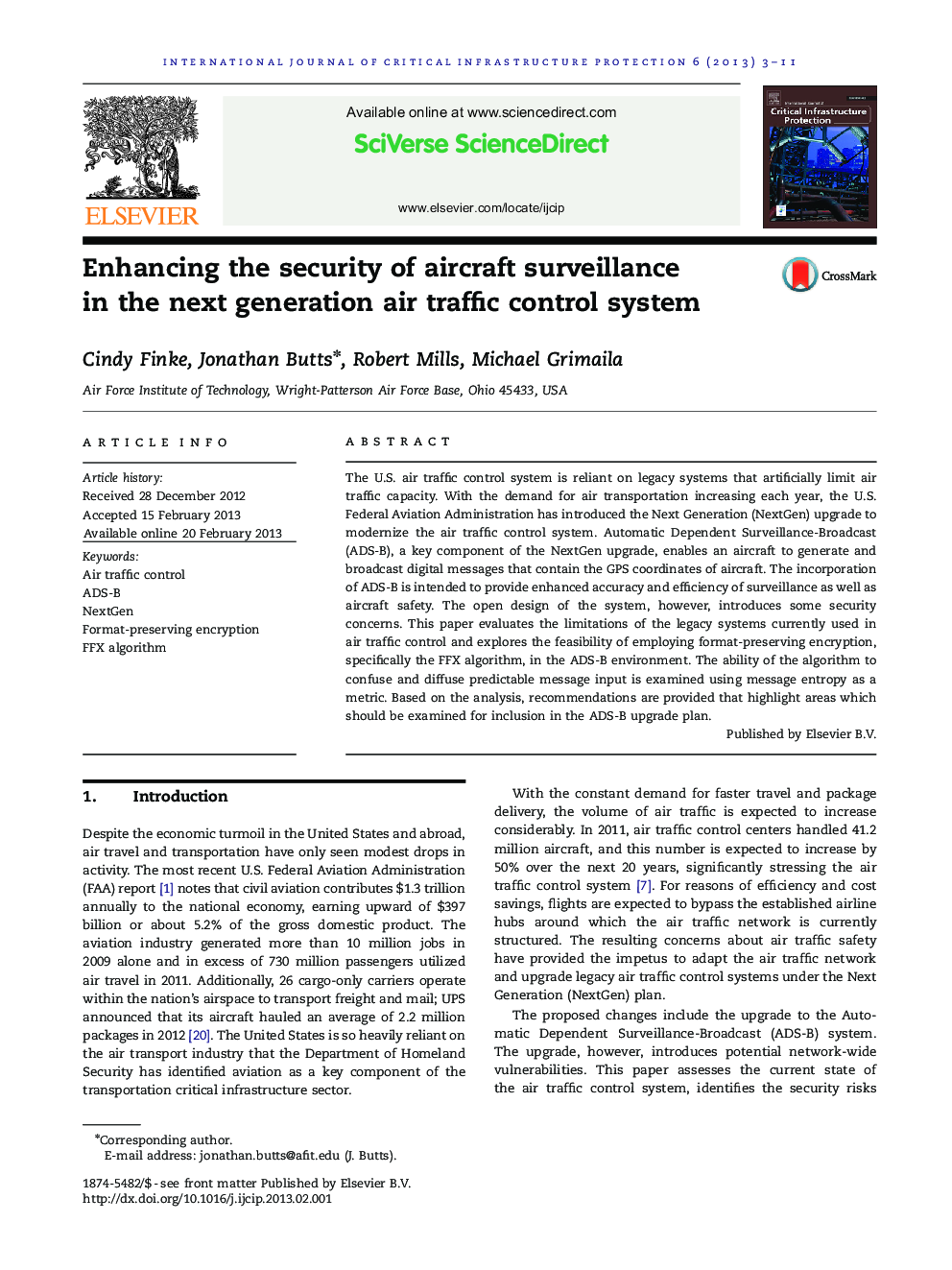| Article ID | Journal | Published Year | Pages | File Type |
|---|---|---|---|---|
| 275766 | International Journal of Critical Infrastructure Protection | 2013 | 9 Pages |
The U.S. air traffic control system is reliant on legacy systems that artificially limit air traffic capacity. With the demand for air transportation increasing each year, the U.S. Federal Aviation Administration has introduced the Next Generation (NextGen) upgrade to modernize the air traffic control system. Automatic Dependent Surveillance-Broadcast (ADS-B), a key component of the NextGen upgrade, enables an aircraft to generate and broadcast digital messages that contain the GPS coordinates of aircraft. The incorporation of ADS-B is intended to provide enhanced accuracy and efficiency of surveillance as well as aircraft safety. The open design of the system, however, introduces some security concerns. This paper evaluates the limitations of the legacy systems currently used in air traffic control and explores the feasibility of employing format-preserving encryption, specifically the FFX algorithm, in the ADS-B environment. The ability of the algorithm to confuse and diffuse predictable message input is examined using message entropy as a metric. Based on the analysis, recommendations are provided that highlight areas which should be examined for inclusion in the ADS-B upgrade plan.
